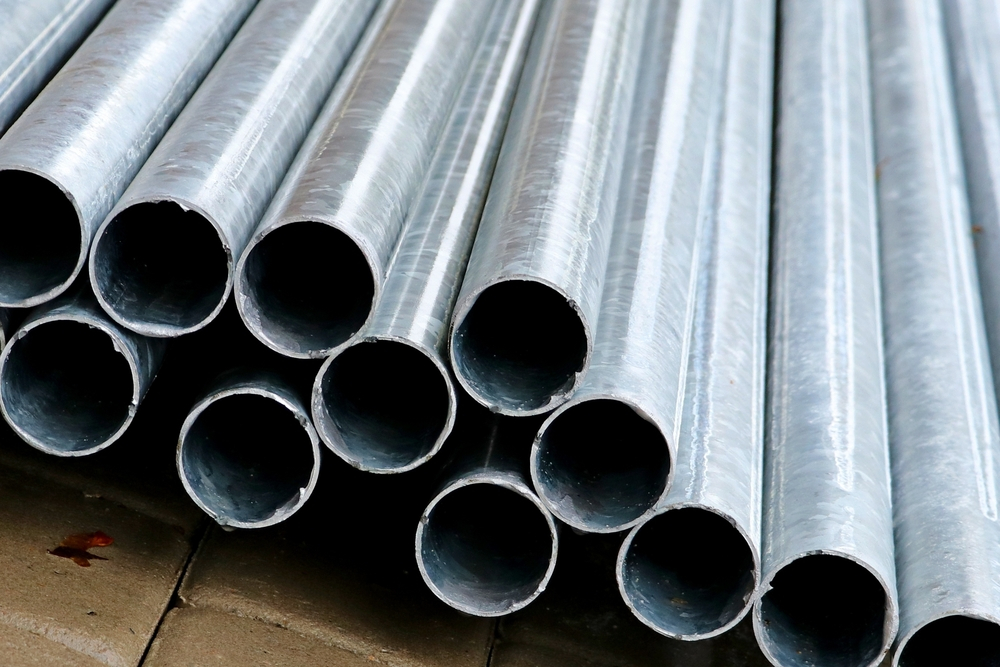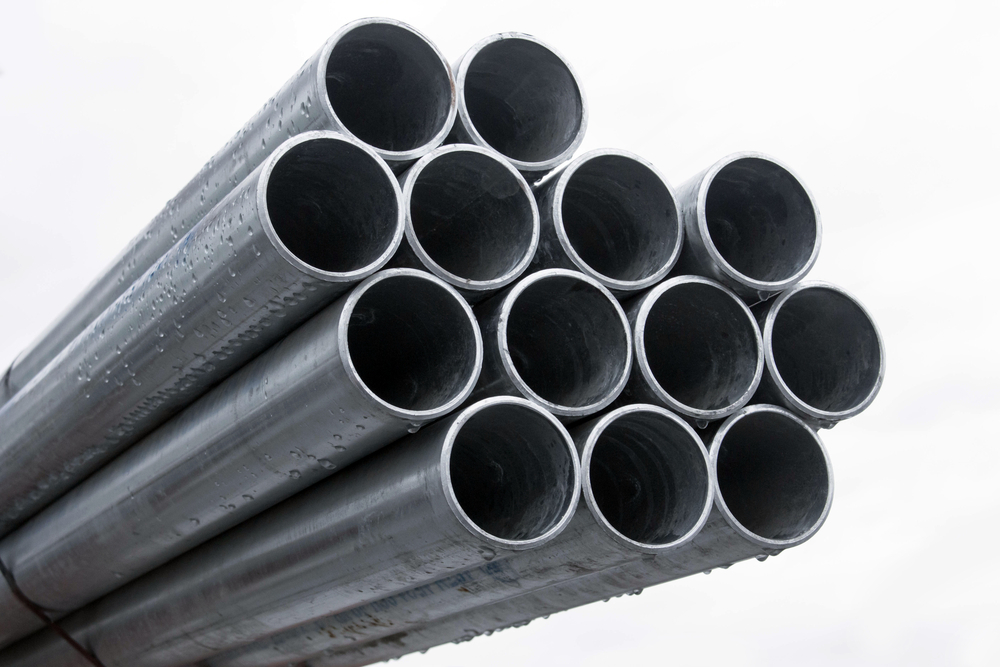1-Exploring the Versatility and Strength of Schedule 40 Pipe in Modern Steel Manufacturing
Schedule 40 pipe offers versatility and durability that has made it an essential component for various industrial applications in today’s manufacturing landscape. As we explore the unique properties and manufacturing process behind schedule 40 pipe, we will uncover why it has become a staple across steel production.
2-What is Schedule 40 Pipe?
Schedule 40 pipes refer to a specific pipe standard that denotes a certain wall thickness. The term “schedule 40” means the pipe can endure high pressures without deforming. Schedule 40 pipes have a medium thickness, falling between Schedule 20 and Schedule 80 variants in terms of sturdiness. But what sets Schedule 40 pipe apart is its unique balance of malleability and strength.

While meeting the durability demands of industrial work, schedule 40 maintains enough flexibility for bending, cutting, and welding applications across manufacturing. We will further highlight the versatility and resilience behind the trusted Schedule 40 standard.
3-The Manufacturing Process Behind Schedule 40 Pipe:
Gaining an understanding of the Schedule pipe production process allows us to appreciate what sets it apart in terms of quality and performance. Schedule 40 pipe undergoes specialized techniques to achieve uniformity and precision not found in other pipe types.
Raw Steel Material Selection
The manufacturing process starts with examining chemical and physical properties during raw steel selection. Choosing high-grade carbon or stainless steel ensures schedule pipe meets quality control standards. The raw steel arrives at facilities in flat strips, plates, or coils ready for further shaping.
Forming the Pipe Shape
Shaping the raw steel into a pipe form provides a circular structure and seam unique to piping applications. Two main methods exist in shaping Schedule 40 pipe:
Seamless Pipe Production Seamless schedule 40 pipe involves pushing or pulling solid steel over a mandrel to achieve the hollow, tubular shape without a welded seam.
ERW Method – Electric resistance welded (ERW) schedule 40 production first cold forms the raw steel into a tube-like shape. An electric current then spot welds the curved steel together along its body.
Both Seamless and ERW methods produce schedule pipes meeting the crucial standards around circumference consistency and structural integrity.
Sizing the Pipe Wall Thickness
After initial pipe forming, additional cold drawing and rolling narrow the pipe walls to a specific schedule of 40 thicknesses. Since the schedule denotes a certain wall width between schedules 20, 80, and beyond, controlling the steel gauges is vital. Modern tube mills carefully size the pipe walls down to +/- 10% of stated sizes to meet requirements.
Testing and Quality Control
Throughout and after fabrication, schedule pipe undergoes thorough testing ensuring optimal safety and performance. Some crucial quality checks include:
Hardness Tests – Measure pipe hardness values signaling strength.
Flattening Tests – Pipe sections get flattened to check for defects.
Hydrostatic Tests – Pipes undergo high pressure without bursting.
Ultrasonic Tests – Soundwaves detect pipe imperfections.
By passing rigorous testing, clients can trust schedule pipe offers the highest level of safety regardless of application.
4-Why Choose Schedule 40 Pipe?
After gaining more context around the manufacturing behind it, we can better highlight the unique benefits schedule 40 pipe provides across industrial and construction applications:
Offers Crucial Pressure Ratings for Safety
Thanks to the controlled thickness and high-grade steel properties, schedule 40 reliably withstands worksite demands. Schedule pipe pressure scores fall between Schedule 20 and Schedule 80 variants for striking the right balance. Specifically, schedule 40 pipe handles:
Working Pressures – Up to 800 PSI liquid, 1,440 PSI vapor
Delivering these substantial pressure tolerances prevents hazardous pipe failures or leaks keeping workers safe.
Provides Essential Impact Strength
In addition to hoisting heavy internal pressures, schedule pipe absorbs outside impacts preventing cracks or punctures. Schedule 40 pipe features a minimum impact strength of 65 Kg/cm2 making it suitable across rugged conditions. Whether enduring external twisting, bending, or crushing, clients can trust schedule 40 pipes to hold strong.
Allows for Customization of Size and Fittings
The controlled production behind schedule pipe enables customized sizing to fit specific operation requirements. After meeting baseline diameter and thickness standards, schedule 40 pipes then tailors:
Diameters – Ranging from 1/8” to 72” depending on service needs.
Fittings – Equipping pipes with optimized joints, elbows, tees, and connections.
This flexible scaling makes it possible to dial in schedule pipe into existing system layouts.
5-Simplifies Welding and System Integration:
Thanks to schedule 40’s balanced thickness and composition, it also readily allows welding modifications on site. Workers can insert schedule 40 pipes into current piping grids through standard welding. Schedule 40’s partial malleability and melting point help to facilitate modifications meeting safety codes. Whether implementing new process equipment or repairing existing infrastructure, clients depend on schedule 40 pipes’ innate customization abilities through welding attachments.
Driving Expanded Applications Across Industries
Due to its harmonious blend of reliability, safety, and flexibility, we have seen Schedule 40 pipe expand into diverse roles powering modern manufacturing sectors:

Oil and Gas Operations
Transferring and providing access points for fossil fuels depends on schedule 40’s durability in mining applications. Specifically, schedule 40 allows both liquid and gas conveyance.
Chemical Processing Plants
Preventing dangerous chemical leaks means outfitting facilities with schedule 40 piping that withstands hazardous fluids. Plus, schedule 40’s custom diameters to simplify retrofitting existing layouts.
Energy and Power Generation
Delivering pressurized steam across thermal power plants utilizes Schedule 40’s trusted pressure ratings across small and large-bore configurations.
Water Treatment Infrastructure
Ensuring clean drinking water relies on corrosion and impact-resistant schedule 40 piping capable of lasting decades.
Food and Beverage Facilities
Maintaining rigorous sanitation and cleanliness standards is possible with schedule 40’s smooth, nonporous wall that prevents contamination.
Mining Operations
Withstanding severe underground conditions means mining companies rely on Schedule 40 for ventilation, material transport, and equipment integration purposes.
From the above industries, we see how Schedule 40 pipe expands operational possibilities across essential utilities and process manufacturing.
The Trusted Schedule 40 Difference
Schedule 40 pipe stands as the most referenced and time-tested pipe variant because of its versatility stemming from a balanced design. It delivers the right combination of durability, flexibility, and customization abilities making Schedule 40 a safe choice. As we have covered, special considerations around manufacturing precision allow schedule 40 specifications to excel in versatility across modern applications.
By understanding the engineering and science behind producing schedule 40 material strengths, we gain more confidence in how it drives various industries safely. As businesses look to adopt new processing equipment or modernize existing builds, they inevitably turn to the flexibility promised through Schedule 40’s unique blend of compliance and resilience. With such dependability powering essential operations, schedule 40 will no doubt persist as a gold standard across present and future worksites for decades to come.
6-Frequently Asked Questions:
What is schedule 40 pipe?
Schedule 40 pipe refers to standard-weight carbon steel pipe that meets a specific wall thickness specification to withstand working pressures of up to 800 psi for liquids and 1,440 psi for gas. Schedule 40 has a medium wall thickness that provides greater strength than schedule 20, but less than schedule 80 pipe.
What are schedule 40 pipes made of?
Schedule 40 pipe is typically made from carbon steel alloys or stainless steel. The raw steel material is specially produced to tight chemical and mechanical specifications to meet required hardness levels and strength properties.
What industries use schedule 40 pipes?
Due to its versatility and reliability at medium pressures, schedule 40 pipe has widespread use across oil/gas, chemical processing, power plants, wastewater treatment, food/beverage, and mining facilities among other manufacturing and infrastructure applications.
What sizes and lengths do schedule 40 pipes come in?
Schedule 40 pipe is produced in diameters ranging from 1⁄8 inch to 72+ inches, allowing extensive flexibility in piping applications. Standard pipe lengths range from 20 feet for smaller diameters up to 40 feet for large diameter pipe. However, it can be cut and fabricated into customized sizes.

We have the best quality steel pipes. and we hope you have the best experience if you take our products.
© 2024 Mehboob Steel Traders. All rights reserved.

